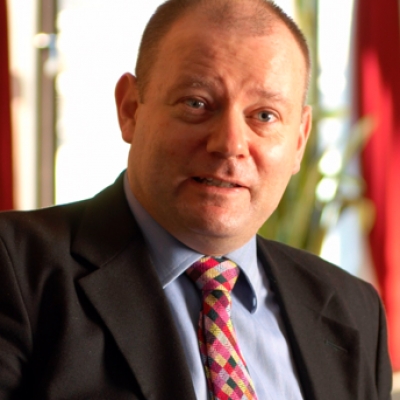EU: Brussels Needs Real Energy Pro
The CEE countries were left out of all top jobs in Brussels. As compensation, the top EU energy job should be filled by them.
July 29, 2019
Look beyond all the current hoopla that surrounds Ursula von der Leyen’s selection as the President of the European Commission.
The key point to remember is that the pool of people selected for the EU’s other top posts all hail from “old” Europe. EU High Representative Borrell comes from Spain, European Council President Michel is from Belgium and the ECB will be led by Christine Lagarde from France.
Central and Eastern Europe left in the cold
The states of Central and Eastern Europe and the Baltic States (CEE) thus have reason to feel less than pleased with the carve up of EU top jobs.
To make up for that, the CEE states should now push to place a major figure into the top energy role in the European Commission. This person could play a vital role in protecting their interests as well as the interests of the Union as a whole.
There is a very compelling case for the CEE states to insist on a capable figure from their part of the Union to take a major role as Energy Commissioner, with additional responsibilities for energy security, and equipped with Vice Presidential status.
An energy crisis is brewing in the EU
Beyond the tactical argument that the CEE states have to be compensated for all the major positions going to Western Europeans, the principal argument in favour of this proposal is that there is an emerging energy crisis brewing on the EU’s eastern border.
Gazprom and its allies, lobbyists and supporters have been indicating for several months now that, when the Ukrainian transit contract expires on January 1st, 2020, no gas will henceforth flow via the Ukrainian pipeline.
That is a fundamental change. Consider that, in 2018, 83bcm of gas, close to total German natural gas consumption in 2018 (88bcm) still flowed on to the EU states via Ukraine.
Since this spring, European and Ukrainian companies have been pumping gas into their storages at full capacity in anticipation of next winter’s energy crisis. Gazprom itself estimates that by October there will two and half times more gas than normal in EU storage facilities.
Despite these contingency measures and the steps taken over the last decade to fund interconnectors and enhance the resilience of the EU gas market, the closure of the Ukrainian transit network is bound to trigger a price surge across Europe and a supply crisis in some Member States.
Russian gas politics
Aware of these dangers, the European Commission has undertaken regular rounds of negotiations to agree a new transit deal between Russia and Ukraine.
However, it has been clear for some time now that Gazprom is only prepared to enter into a deal if Ukraine is willing to accept wholly unacceptable conditions (these include waiving an arbitration award of $2.8 billion granted to Ukraine by the Stockholm Court of Arbitration in 2017).
There thus is a real risk of an imminent third European gas crisis almost as soon as the new European Commission enters office on 1st November. This crisis follows those of 2006 and 2009.
Brussels needs an energy pro
Under those circumstances, the EU Commission needs a powerful figure who can hit the ground running from day 1. It needs someone who can master the detail of this complex brief.
Preferably also someone who is used to dealing with the Russian state at a high level (and therefore speaks Russian). And a person who can gain the confidence of both western and eastern EU Member State governments.
The new Energy Vice President will not just have to deal with a crisis management operation. As in the aftermath of the 2009 gas crisis, it will be necessary to develop a longer-term plan in cooperation with the Member States and the private sector to enhance the supply security resilience of the European Union and ensure a fully functioning single energy market.
Eastern Europe and renewable
Moreover, this brief is not just about fossil fuels. It is also about supporting a major role out of renewables across the CEE states.
A considerable amount of the resistance to renewables deployment in the CEE states understandably focussed around the cost of deployment and the consequent need for subsidies.
Now however, with the collapse in the cost of renewables they can play a major role in reinforcing the energy security of the region and the Union as a whole.
Conclusion
What is required is someone like Vygaudas Ušackas, formerly the Lithuanian Foreign Minister and EU Ambassador to Moscow.
He can deal with a crisis, manage a very complex technical brief, deal with the Russians, while working with the Member States and U.S. allies to minimize the impact of the loss of the pipeline.
And, most important of all, he can subsequently develop an effective resilience plan for the EU to ensure there is never a fourth European gas crisis.
Takeaways
The CEE countries were left out of all top jobs in Brussels. As compensation, the top EU energy job should be filled by them.
There is an emerging energy crisis brewing on the EU’s eastern border.
Gazprom has indicating that, when the Ukrainian transit contract expires on January 1st, 2020, no gas will flow via the Ukrainian pipeline.
There is a real risk of an imminent third European gas crisis almost as soon as the new European Commission enters office on 1st November.
